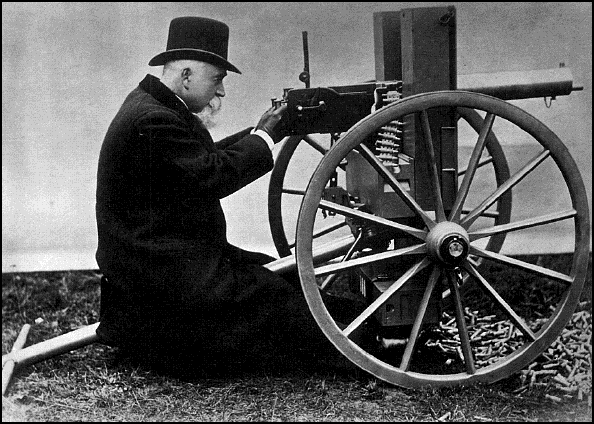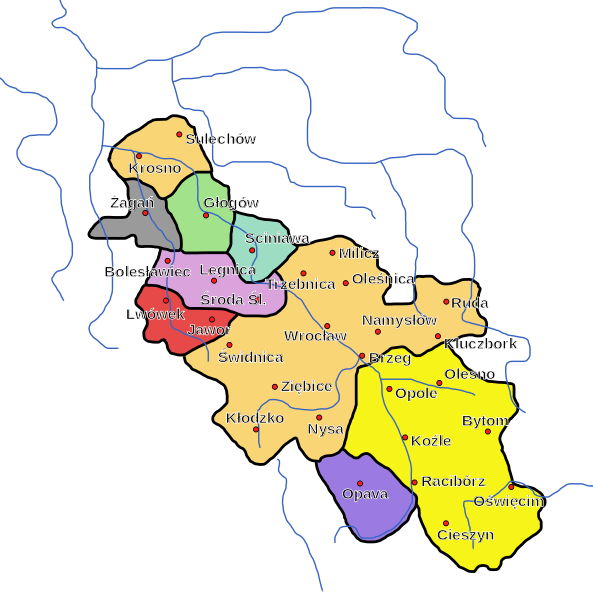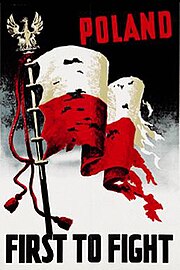Vaarna_Aarne said:
The game makes up for the shorter length by a much better and more detailed gameplay.
Anyway, my hat's off to you if you start winning back territory before you invent Machine Guns.
I'm afraid that this not being totally suicidal would depend of certain circumstances like being able to get in conflict with the usually shitty tech-wise Russia and having Austria to back up Krakow, which was the original plan before a Russian invasion of Austria swapped Krakow to their sphere of influence. Instead right now the diplomatic situation only favors challenging the most powerful of the three countries that carved Poland: Prussia, and either I still didn't figure how to attempt negotiating purchase of foreign land(because there is no option for trade in the diplomatic menu), only secondary and great powers can buy land or strangely Vicky 2 lacks trading of tech and land.
Also this update will have a larger amount of screenshots than usual but it will be worth.
==============================
Victory or Death!
Soundtrack
The Nationalist Party's stay in power was brief, as another conservative party won the elections of 1855 in Krakow, same year when the unity of Kwanzania was shattered because of the decline of MULTIKULT against which the Confederated States of Amerikwa made their hopeless stand. The Amerikwan Civil War has begun, and the chances of the Confederates were very small. Another interesting fact is that, strangely, Russia either colonized or conquered part of the Kwanzanian West Coast around Portland.
Russian USA. Hamster would probably have blueballs over it...
Many developments happens in regards to the modernization of the incoming small military of Krakow, for only technological superiority they would stand a chance of achieving their seemingly impossible dreams. The officer corps delegate authority to reduce the time taken before new decisions are made, and a system of statistics to improve logistics and operations is established. The economically active population of Krakow was about to reach one hundred twenty thousand men, and hopefully the steady growth would carry on, allowing for the whole population to border one million and for the able-bodied men to reach two hundred thousand.

But there were invisible enemies that seemed to aways attack the most oppressed people rather than the oppressors. The hopes of a major population boom are ruined as an epidemic of Cholera starts, Because Krakow is the only province of Krakow, this will hurt her future aspirations her and economy a lot. A complete quarantine begins in the hopes of avoiding the disease from spreading too much, but the epidemy still ravages through the small nation during two years, causing a death toll of nearly twenty-thousand lives, nearly four percent of the entire city.
The young capitalists in Krakow are having a hard time to build its first cement factory, but it seems almost over now, while military strategies are improved, and the expansion of the network of fortifications within Krakow shall be initiated. The first step in industrialization shall be an important one, and time is coming for it.
Three years later, because the Poles are truly a blessed people, another epidemic of Cholera begins, even worse than the previous one. For a few, this was a sign of the Ultimate DOOM Expansion Set for Krakow, the apocalypse, ITZ COMING! For others, it was a deliberate action by secret societies supporting the oppressors of the Polish people, but no matter whether accidental or man-made, this second outbreak would prove itself even more deadly than the first one, killing more than 28 thousand inhabitants of the city, 6% of the city. If even another epidemy of Cholera happens again, then there is no doubt: This is like that thing Cleve was talking about.
Rifles are improved further. The new rifles of Krakow can be loaded from the breech rather than from the muzzle, and thus they are both faster to reload and more reliable.
The first factory of Krakow is completed, but unfortunately, it seems unable to attract either laborers or immigrants to fill the positions and get employed in it, and instead ends being seriously understaffed. Something must be wrong. Maybe the multiple Cholera epidemics have turned Krakow into the "ass of the world" to the eyes of the people from other countries.
Struck by two epidemics of Cholera, Krakow has seen the rise of radical movements demanding the immediate fight for the restablishment of Poland. These highly nationalistic men were against the government's hush-hush stance on it, and demanded for Krakow to declare war against all the three enemies of Poland, some so fanatical they thought God was going to come and ensure their victory. Meanwhile, two radical factions: the anarcho-capitalists and the socialists, have been slowly gaining ground in politics, while the traditional ideologies were losing it instead.

For God know what reason, when the CSA was long gone, Russia thinks Alaska is worth fighting a war for. Maybe they had some kind of prophets along the Tzar claiming many wealths lied in this region, as would be proved many decades later: first in gold and then in oil. Honoring their alliance, once again Krakow agrees to send a formal declaration of war against the United States of Amerikwa, whose president will probably treat as a joke and laught at. Kwanzania was much closer to the democratic ideas of Krakow than Russia, after all, but realpolitik was a necessary evil to survive in such a geopolitical situation.


The Russian war for Alaska, as expected, fails epically, but ultimately a white peace is signed for no ground seems to have been gained in Kwanzania. It was 1868, and now, after decades of preparation under the religious guidance of the Catholic Party, elected thrice, in spite of the growth of radical ideologies everything was being set for the greatest, most important moment in the history of Krakow. The number of soldiers grew enough for a standing army of two brigades to become possible, while a third brigade of recruited workers would be mobilized. The lack of success at ensuing a boom of population in Krakow meant this would be everything they could raise, and thus, all lied upon Russia and Austria once that decision is made.
For once it is made, there will be no turning back. However, stagnating will lead nowhere either. It will be all or nothing, once the time comes.
Two epidemics of Cholera and now no potato

Yet, in face of so many adversities, Krakow shall never surrender, the time of peace and complacency with the established order of Central and Eastern Europe was ending.
The wealthy have no right of infringing on the freedom of association of the poor. Perhaps by allowing them unrestricted freedom, the poor people will actually vote for the Catholic Party for a fourth time. The rich people became very upset about such decision, and rather than reducing the influence of socialism, it only increased it.
Feminazis began to march over the streets preaching that women should also have the right to vote. A growing part of the Senate becomes liberal, and this will hopefully counteract the growing number of truly socialist politicians there, and they were not of the social-democrat variety, but true marxists who wanted to forcefully transform the economy of Krakow into a planned one.
In the last month of 1870, Krakow signs the Geneva Conventions about war. They are no savage machete rape gangs to go around shooting and shelling hospitals.
There was a strong desire among large parts of the working class of implementing a socialist economy in Krakow. If one conservative in the far future would think Obama is socialist, imagine a Senate with a majority of Marxists who want the creation of a planned economy and the complete dissolution of the upper classes. That was how the Senate of Krakow was becoming, and it was very dangerous: becoming another Commune of Paris would bury forever the dreams of an independent Poland by putting the entire world against them.
A major rebellion happens through Austria, for the emancipation of the people the Austrians conquered. Eventually it is put down, unfortunately, for this means that eventually Krakow will have to fight a war against Austria to retake their rightful territory.
Once again the annoying rich people want for the government to behave in an undemocratic manner against the democratic right of free association among the poor people, and are told to fuck off through a 10-pages long answer to their request. Liberty is a right of everyone in Krakow.
But retiring with dignity isn't. Some people too old or severely injured to work that lack families to support them end as beggars or even die of starvation. A growing pressure begins for the government to implement pension funds, but right now, the funding of the small Armia Krajowa is the only hope for the future of Krakow. Once the prosperity of seizing their rightful territory comes, then pension funds may be implemented.

Is democracy a flawed idea? Or is perhaps the true will of the people to embrace socialism? According to the latest polls in the beginning of 1873, half of the population now supported socialism. Something had to be done before another Commune of Paris started, not repression, but something that could draw the interest of the people towards a much greater concern: the fact most of the Poles were oppressed by foreign and tyrannical governments all around them. Socialism and the ultimate defeat as the seed of a revolution will be crushed by Russia, Austria and Prussia? Or a War with slim hopes of victory against the most powerful empire of the world: the British Empire, and Prussia, her ally?
The idealists in Krakow would rather for this to be the end than to oppress their own population.
In the vanguard of military technologies, Krakow develops at last something that may give her an edge in the upcoming Great War. The machinegun, a powerful weapon capable of firing in incredible rates, an invention that would begin a long proccess in changing forever the nature of war, to something much, much bloodier. Now, there was nothing else holding Krakow from its Aristeia, its moment of all or nothing, nothing but the fear of how this would end. Thousands flocked to the Polish and Lithuanian Pan-nationalist movements in expectance for the time that was coming. Prayers were made, for victory would mean untold glory, but defeat would mean the total subjugation of Poland, perhaps forever.
And thus, a tiny country of little more than four hundred thousand inhabitants would trigger one of the greatest wars ever fought in History. Knowing well their precarious state, the president of Krakow went in several secret meetings with the Austrian government, negotiating support for the potential unification of Germany by Austria in exchange of their support for their liberation of all formerly Polish territories occupied by Prussia. Many victories will be required to convince the Prussians of conceding defeat over such ambitious goal for a such tiny country.
First, Silesia would be the goal of Krakow. This would be a very dangerous war, but there was no other choice. Elections were still ongoing when the current government would make the most important decision ever made in the history of the Free City of Krakow, shouting:
We shall not stand back!
Music
The growth of Prussia as a power was against the Russians agenda, while the promise of support to the cause of unifying Germany ensued the Austrians aid in this very dangerous and challenging war, but one where ironically a tiny country uses the same realpolitik of the Prussians against them. And thus, Krakow, the Russian Empire and the Austrian Empire declared war against Prussia and the full might of the British Empire. Later in History the forces siding with Krakow would become known as the Allies, and the forces siding with Prussia known as the Entente.

The first battle fought in this Great War was, as predicted, the Battle for Krakow. A force of 21,000 Prussian soldiers attempted to break through the extremely developed fortifications of the city, defended by 3,000 infantrymen, 3,000 cuirassiers and 3,000 artillerymen in a brutal battle, where the machine guns proved themselves to be the difference, and for every Polish soldier fallen, near ten Prussians died. Despite outnumbered, the defenders of Krakow fought bravely, with a discipline and determination that putted the Prussians to shame. And eventually, reinforcements arrived,

The Austrian soldiers however were far less disciplined and skilled, despite greater in numbers, and thus they brought a much greater death toll to the defenders of Krakow. The Polish general Samuel Mokronowski, who is also a Jew, retains command over the defenders due to his incredible competence in defensive warfare(+2 bonus to Defense), and soon victory seems at hand for Krakow, thanks also to the advantage of the fact they had cavalry, while the enemy didn't.
The might of the Prussian army is crushed over the walls of Krakow! The meaning of this first victory is immense. The population cheers to their heroes, although they meet the Austrians coldly. In spite of the Austrian lack of competence, the Prussians suffer twice as much losses. And this also was a victory against radical socialism, for the people were now confident in the capability of the established order. Confident by this victory, the Armia Krajowa marches forward towards Kattowitz.

Thanks to the victory over the Battle of Krakow, the socialists lose in the ballots, although they remain a significant political faction, and some analysts actually praise the lack of de facto bipartisanship within the politically diverse environment of Krakow's democracy that has many more parties of relevance than just the same Republicans and Democrats over and over again, like in Kwanzania. A highly jingoistic and reactionary party, promising the return of the glory of the Polish-Lithuanian Commonwealth, wins, beating the Catholic Party, however, the risk of their reactionary nature leading to the reversal of all political freedoms achieved in the last decades is nullified by the strength of socialist and liberal senators within the government.
Another music
Before they could recover, the same Prussians who attempted to subjugate Krakow are stormed by Armia Krajowa and Austrian forces in Kattowitz. The heavily fortified region makes of the battle a bloody one, but driven by a nationalistic fervor, the Polish soldiers fight fanatically for the liberation of their oppressed brothers in Silesia. The courage and determination of the Polish Cuirassiers against the enemy is legendary, as part of the creation of once might become a very traditional and prestigious cavalry force.
Many gave their lives to return the first part of Silesia to their rightful people, the casualty rate was high, as expected due to the level of fortifications in the region and the necessity of crossing through a river, but nevertheless, it was the first offensive victory of Krakow, and eventually the entire province would fall under control of their rightful owners, whose flag waved proudly over the former seat of the local, sold-out government already.
Fortunately, in spite of decades of subjugation and attempts of destroying the Polish language and culture, the people still resisted, and soon they would cheer to the liberators.
Even with both Austrians and Russians fighting against them, the Prussians still were proving themselves to be formidable foes. Fortunately there were no signs of British troops yet, but that could change as well. The Great War was just beginning.
In the New Years Eve of 1874, many of the inhabitants of Krakow were timidly waving the flag of Poland instead of the flag of Krakow, while the occupation and liberation of Kattowitz carried on. The once repressed desire was now becoming explicit. Many of the inhabitants of Krakow called themselves Polish and acted like if they were in Poland. Meanwhile, the Great War began to finally turn slightly against the Prussians. While they have gained a few territories against Russian and Austria, East Prussia was about to be completely overran by the Russkies, and perhaps, perhaps, victory could be achieved, and one day, Silesia shall once again be Pole! To the challenges ahead there was only one answer:
VICTORY OR DEATH!
==================================
Also I'm failing to attract enough laborers to become craftsmen, and after years the cement factory has a staff ranging only from 20-40 craftsmen and clerks. Although some of the tricks to incentive conversion seem trivial, and there are lots of explanations of the modifiers shown in tooltip form about what causes POPs to convert, seeing the factory generating only 0.01-0.04 of income is depressing. Maybe it's another of the quirks from vanilla. Also I failed epically at attracting immigrants in spite of having a whole factory there with the need of over 9900 additional employees. On the contrary, emigration is happening occasionaly instead.
But I guess I'll just do it blindly instead of asking for help. Getting in war with both Prussia and the British Empire, regardless of having the Russkies and Austrians support, may end as a suicidal move, after all.



























































